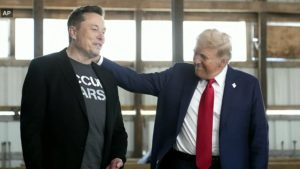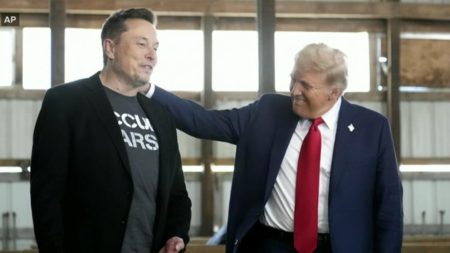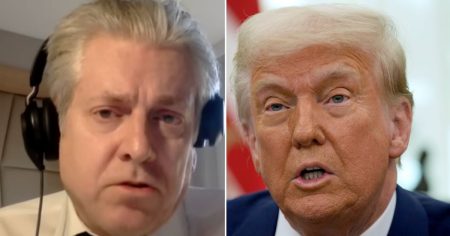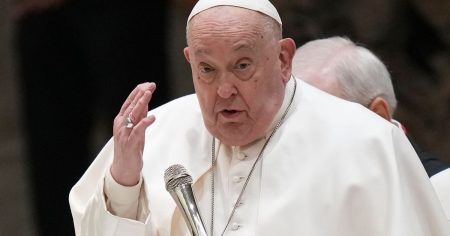A Former NFL Player’s Bold Critique of Trump and the MAGA Movement
Chris Kluwe, a former NFL punter known for his time with the Minnesota Vikings, has made headlines recently for his outspoken criticism of former President Donald Trump and the MAGA movement. In a recent interview with CNN’s Sara Sidner, Kluwe doubled down on his controversial remarks, drawing stark parallels between the rise of Nazi Germany under Adolf Hitler and the current political climate in the United States. Kluwe’s comments have sparked both support and backlash, highlighting the deep divisions in American society.
The Historical Parallels That Alarmed a Nation
Kluwe’s criticism of Trump and the MAGA movement took a dramatic turn when he explicitly compared the movement to Nazism during a city council meeting in Huntington Beach, California. He was attending the meeting to voice his opposition to a proposal for a library plaque that included a MAGA reference. Kluwe’s remarks were forthright: he described the MAGA movement as being on a path similar to that of Nazi Germany under Hitler. He emphasized that the parallels between the two were “very, very clear,” a statement that has drawn both criticism and support from across the political spectrum.
A Peaceful Protest and Its Consequences
Kluwe’s involvement in the city council meeting took an unexpected turn when he engaged in what he described as “peaceful civil disobedience.” His actions led to his removal from the meeting by police, and he was subsequently arrested for disrupting a public assembly. Kluwe, however, remained unapologetic, stating that his actions were necessary to bring attention to what he believes is a dangerous trajectory for the country. His arrest has become a focal point in the ongoing debate about free speech, activism, and the limits of political protest.
A Scathing Critique of the Trump Administration
In his interview with CNN’s Sara Sidner, Kluwe expanded on his critique of the Trump administration, accusing it of seeking to plunge the country into chaos for the sake of gaining power. He reiterated his belief that the administration’s actions were eerily reminiscent of the tactics employed by authoritarian regimes, including Nazi Germany. Kluwe’s comments were not limited to Trump; he also expressed his disgust at the White House for sharing an AI-generated image of Trump wearing a crown, a gesture he interpreted as a symbol of Trump’s alleged authoritarian ambitions.
A Message to Trump Supporters: A Warning from History
Sidner pressed Kluwe to address his message to Trump’s supporters, many of whom remain loyal to the former president despite his controversial rhetoric. Kluwe’s response was a direct and chilling warning: “Hitler was elected, too,” he said, drawing a parallel between the Germans who supported Hitler and the Americans who continue to back Trump. He acknowledged that many Trump supporters believe the former president has their best interests at heart, but he argued that the administration’s actions have provenotherwise. Kluwe urged these supporters to reflect on history and consider the potential consequences of their continued support.
A Call to Action: The Price of Inaction
Kluwe’s message was not just a critique; it was a call to action. He implored Trump supporters to consider the lessons of history and to act before it is too late. “I would like for those Americans to not live after all the bodies have dropped and be filled with regret because they failed to do the right thing when it was time to do the right thing,” he said. His words were a stark reminder of the responsibility that comes with citizenship and the importance of standing up against what one believes is wrong, even in the face of overwhelming opposition.
Conclusion: The Broader Implications of Kluwe’s Crusade
Chris Kluwe’s recent activism and comments have sparked a nationwide debate about the state of American democracy, the dangers of authoritarianism, and the role of individuals in standing up against injustice. While some have praised his courage and conviction, others have criticized his tactics and rhetoric as divisive and alarmist. Regardless of one’s political views, Kluwe’s story serves as a reminder of the power of individual activism and the enduring importance of questioning authority. His journey from the football field to the frontlines of political activism is a testament to the idea that one person can make a difference, even in the face of overwhelming odds.















